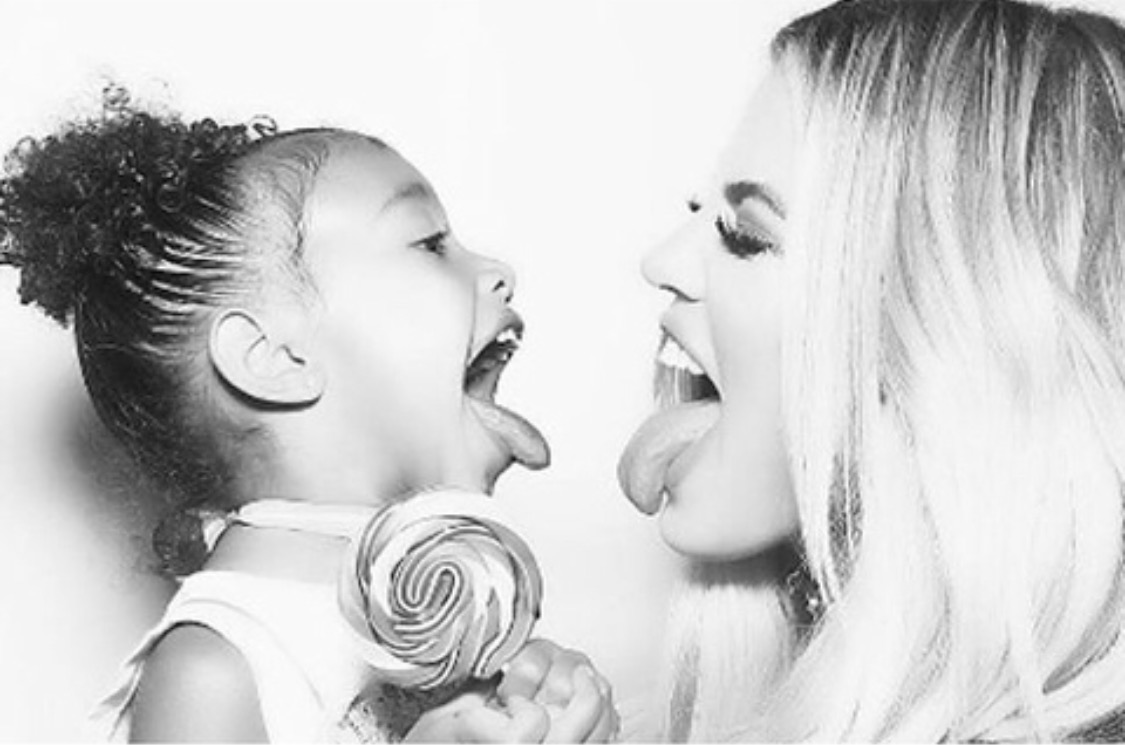
Ruth Bader Ginsburg is perhaps an unlikely rock star: an 83-year-old U.S. Supreme Court justice who was described as “dour,” “quiet and reserved,” and a “late-blooming feminist” when she was nominated to the court in 1993.
But if you have a daughter, and you love her, and you want her to grow up to be a confident trail-blazer–you could do a lot worse than suggesting Ginsburg as a role model.
Writing in The New York Times this week, she offered her “advice for living,” in advance of her new book, My Own Words.
Here’s Ginsburg’s best counsel, especially for parents of daughters who want them to mature into confident, fierce, high-achieving women.
1. Foster a love of reading.
No matter what you hope for your child, or what she hopes for herself, there’s no better thing you can impart than a love of reading. It’s truly a passport to explore the world, barely discriminates between rich and poor, and can expand and train her mind. It’s important enough that it’s the first thing Ginsburg mentions in her article, and she credits her mother, who “by her example, made reading a delight.”
Sadly, Ginsburg’s mother battled cervical cancer and died young, reportedly the day before Ruth’s high school graduation ceremony. Ginsburg later called her mother”the bravest and strongest person I have known, who was taken from me much too soon.”
2. Teach them to be independent.
This is truly the second most important thing: ensuring that they learn who they really are and remain true to themselves. Society pulls people in so many different directions, trying to shape us into roles that we might not really want for ourselves. I’m speaking as a man, but it’s easy to see how this is even more challenging for women.
Again, Ginsburg credits her mother for fostering this streak in her. It was her mother, she writes, who “counseled me constantly to ‘be independent,’ able to fend for myself, whatever fortune might have in store for me.”
3. Encourage them to seek out great teachers.
Many of us can remember one or two teachers who made a real difference in our lives. Ginsburg cites two: a college professor and a law school professor. She credits the latter, Gerald Gunther at Columbia Law School, with helping her achieve her first big career break–a clerkship with a federal district judge.
It’s of note that Ginsburg graduated near the top of her class in 1960 but was not able to get an even more prestigious clerkship with an appellate judge, because she was a woman and the mother of a 4-year-old child.
4. Encourage them to turn a deaf ear when needed
The best advice she ever received, Ginsburg said, was from her new mother-in-law, who told her on her wedding day in 1954: “In every good marriage, it helps sometimes to be a little deaf.”
Sure, it helped in marriage, Ginsburg said, but added: “I have employed it as well in every workplace, including the Supreme Court. When a thoughtless or unkind word is spoken, best tune out. Reacting in anger or annoyance will not advance one’s ability to persuade.”
One of the best examples comes from an equal rights case Ginsburg argued before the Supreme Court as a lawyer in 1979. Having made her argument, one of the justices–they were all men at that time–asked her (perhaps jokingly) whether she’d be willing to settle for having Susan B. Anthony on the then-new dollar coin.
Ginsburg thought of the perfect quip–“No, we won’t settle for tokens”–but later said she decided to turn a deaf ear, and simply didn’t answer the justice’s question.
5. Encourage them to set aside their worries–and simply achieve.
In retrospect, most things in life seem inevitable, but this would be a good time to consider just how unlikely Ginsburg’s assent and career have been. She didn’t grow up with money, and her family faced tragedy twice before she was 18–the death of not only her mother but also her 6-year-old sister.
When Ginsburg decided to go to law school, only 3 percent of attorneys were women, and there was only one female appellate judge in America. Moreover, there were no laws prohibiting employers from simply firing women who became pregnant–heck, we were still 20 years away from laws ensuring that women could open credit cards in their own names.
Ginsburg writes about some simple advice her father-in-law gave her at the time that inspired her: “Stop worrying, and find a way to manage.”
At the time, this meant that she and her husband both started law school while simultaneously caring for their infant daughter–an unusual circumstance at the time. (By the way, their daughter grew up to be an attorney as well, and is now on the faculty at Columbia Law School.)
6. Teach them that they can make their own luck.
Ginsburg describes herself as very fortunate to have been born when she was, but as we’ve seen, it was actually quite unlikely that she would ascend to the successes she ultimately did. A few facts put this in context
Before law school, Ginsburg was demoted at a job for becoming pregnant.
Sexism was so systemic under the law that one of her first cases as a lawyer before the Supreme Court challenged a state law that set different legal drinking ages for men and women.
And when she became a professor for the first time at Rutgers University, she was paid less than her male colleagues, because it was expected she could always rely on her husband’s salary.
As she puts it, though: “I was … alive and a lawyer when, for the first time in United States history, it became possible to urge, successfully, before legislatures and courts, the equal-citizenship stature of women and men as a fundamental constitutional principle.”
All of this reminds us that while circumstances may play a part in terms of opportunity, it’s also your reaction to those circumstances that spins fate. People who understand that are more likely to succeed.
7. Pray that they marry the right person
My fellow columnist Jeff Haden has written recently how important it is to marry the correct person. In the most touching part of her advice column, Ginsburg leaves no doubt that she did choose her spouse wisely.
She met her husband, Martin Ginsburg, while they were both students at Cornell. He became a lawyer as well, and as his wife’s judicial career took off, he sacrificed for her–moving from New York to Washington, for example, and getting rid of potentially lucrative investments that could have created conflicts of interest for her. Plus, he did all the cooking.
Martin Ginsburg died in 2010. As Ruth Bader Ginsburg wrote:
“I have had more than a little bit of luck in life, but nothing equals in magnitude my marriage to Martin D. Ginsburg. I do not have words adequate to describe my supersmart, exuberant, ever-loving spouse. … Marty coached me through the birth of our son, he was the first reader and critic of articles, speeches and briefs I drafted, and he was at my side constantly, in and out of the hospital, during two long bouts with cancer. And I betray no secret in reporting that, without him, I would not have gained a seat on the Supreme Court.”
Want to Raise Successful Kids? 93 Percent of Successful Entrepreneurs Say This Is the Key
I asked 118 successful founders for their best advice, and 110 told me basically the same thing.
Parents want the best for our kids. Near the top of the list? Financial security and freedom.
Since research shows that the only way to accumulate great wealth in America is through entrepreneurship, I asked a huge group of successful entrepreneurs to tell me about their childhoods. Could they point to an experience, or a habit, that they felt was responsible for the way they turned out as adults?
In the end, 118 entrepreneurs responded to my call, producing comments that ran about 30,000 words in total. As I studied what they had to say, I realized that the vast majority of them–110 of the 118 (93 percent)–were describing different variations of the same childhood experience.
Short version? They all said some version of this: “I started young”
Four paths to entrepreneurial success
Of course, it’s not quite that simple. They had different childhoods, different details. They might not even have recognized the similarities for themselves–a little too close to the trees, perhaps, to be able to see the forest.
Additionally, I wanted to take things a step further, and figure out not only that they had started young–but what it was that motivated them to do so?
Also, was there anything that parents could do to spark this entrepreneurial bent?
As we go through a few of their replies below, you’ll recognize some of the names–or at least you’ll know their companies. Others are more under-the-radar, like the so-called “millionaire next door.”
You’ll also see that they fell into four main categories of experiences. I think the last of these categories is the most important for parents, for reasons we’ll explore below. The categories are:
* Personal observation. Founders who told me they’d been motivated by the experience of watching another entrepreneur up close as a child.
* Personal drive and experience. Founders who talked, usually with pride, of having had an entrepreneurial gene that caused them to start little ventures as young kids.
* Personal necessity. Poignant stories of founders who explained that their motivation came from having grown up in poor families, or from suffering tragedies as children.
* Creative necessity. Founders whose parents challenged them come up with creative ways to earn money, even if their families could technically have afforded the things they wanted otherwise. (Again, I think this category might be most important, at least from a parent’s perspective.)
I was truly struck by the way these comments came in, and how the patterns developed. Obviously this isn’t a scientific study, but when you as a group of people a question and then hear the same answer more than 100 times, it’s powerful. Since I want you to have a similar experience, I’ll share brief snippets of what some of these entrepreneurs had to say as we explore their backgrounds.
Read their stories, absorb them, and see if you agree: The best way to give your kids a shot at financial security and freedom? Get them started young as entrepreneurs.
1. Entrepreneurs who learned through personal observations.
The first category of responding entrepreneurs said they were motivated because they watched other people–usually, but not always their parents–who were entrepreneurs and small business people. At least in the stories they shared with me, they learned by observing, rather than by doing.
Again, it’s hard to hear these stories over and over without recognizing the pattern:
“[My biggest influence] was realizing the tradeoff my parents made in immigrating to the United States. While neither of them pursued a career in entrepreneurship per se, the risk/reward profile they took was seared in my brain.”
–Sam Yagan, CEO of ShopRunner, former cofounder of OKCupid and SparkNotes, among others.
“My parents were both entrepreneurs. My dad always told me that it doesn’t matter who signs your checks: you work for yourself. And as I started my career, I developed that mindset: I knew I was going to work for myself.”
–Mark Josephson, CEO of Bitly, a link management platform that processes 400 million links a month for over 800,000 monthly active users.
“Growing up I saw Wayne Huizenga take one garbage truck and turn it into the largest waste company in the country and then create the Blockbuster brand from a few stores. As young as fourth grade I thought, If he can do it why can’t I?”
–Victor Ciardelli, founder and CEO of Guaranteed Rate the eighth-largest retail mortgage lender in U.S.
“My father started his janitorial cleaning company when I was in the 3rd grade. … I learned hard work from an early age but also observed the flexibility [that] being an entrepreneur gave my dad.”
– Hope Oriabure-King, founder, Black Tie Babysitting.
2. Entrepreneurs who cited childhood experiences.
The second category? Kids who actually started businesses on their own.
Of course, it’s possible or even likely that some of these entrepreneurs were motivated by things that bleed into some of the other categories here: Perhaps they were inspired by watching their parents’ entrepreneurial activities, or perhaps they were acting out of necessity.
But it’s telling to me that as they described things, they sort of “just did it.”
Here are some of the most compelling examples. When you read these kinds of stories, you get the picture of kids who simply learned to hustle, and to create value where none existed before:
“In elementary school (age 9 or 10), I sent out flyers: taking trash cans in, getting groceries, watering plants, etc. I then hired out older kids to do the work and charged a 50 percent booking fee…. kind of highway robbery now that I think about it! I ended up making between $50 to $200 a day, which was insane!”
–Chef Daniel Shemtob, co-founder and executive chef at TLT Food, a fast-casual restaurant chain with $10 million in annual revenue.
“In high school, I had a car detailing business where I would pick up executives’ cars when they were at work and detail their cars 2-3 times a week. I made upwards of $30,000 over the summer.”
–Doug Jacob, CEO and founder of JWALK.
“When I was 16, I built an iPhone flashlight app that (secretly) enabled the personal hotspot feature. Apple pulled it from sale [but not before it] grossed over $30,000 in two hours.”
–Nick Lee, 23, partner and CTO of Tendigi, which “specializes in mobile application design and development” with clients like Nickelodeon, Comedy Central, and others.
“When I was 10 or 11, I sought out opportunities to earn my own spending money, from mowing lawns to re-selling golf balls I fished out of ponds at the local golf course.”
–Doug Lebda, Founder and CEO of LendingTree.
“When I was 15, I started clipping coupons to help my family pay for groceries. From there, I searched for nontraditional methods of saving and earning money to help pay for rising tuition bills, car payments and rent — all while never having to answer to a boss.”
–Kyle Taylor, CEO and founder of The Penny Hoarder ($20 million in annual revenue, 53 employees)
3. Entrepreneurs who said they learned out of necessity.
The third category involves kids who, because of financial circumstances, or in some case tragedy, had no choice but to become financially self-sufficient at an early age.
In some cases, they started out working as many of us do — making a salary, working for someone else. But as they grew older and developed their careers, they became true entrepreneurs.
I grew up on welfare … raised by a strong, no-nonsense single mother. … I got my first job at age 11 washing dishes at a restaurant. Eventually, I dropped out of high school so that I could work full-time to bring in money for my mother and brothers, working several other jobs.”
–Sheldon Yellen, CEO at BELFOR, the world’s largest disaster recovery firm.
“Because I came from a country, Lebanon, that was filled with war and with social unrest, it shaped me to become an entrepreneur. … I noticed when I was growing up that food is always needed, in the days of peace as much as in days of war. That’s why I went into food.”
–Robert Atallah, founder and CEO of CedarLane, which employs 700 people and creates fresh and frozen meals for distribution in supermarkets nationwide.
“My parents were immigrants from Vietnam and did their best to give me a wonderful childhood, but money was always tight. During my senior year of high school, my father lost his job … That fear of not having stayed with me.”
–Thomas Nguyen, co-founder Peli Peli restaurants and Peli Peli Kitchen ($14 million in revenue and 250 employees).
“The moment I learned to do basic math, my father taught me to run an illegal lottery system for the Asian community in our small town. My parents were Laotian refugees … put on disability and … not allowed to work. … I was child #15 out of 16 kids, we all learned to hustle and make money.”
–Sysamone Phaphon, CEO and founder, Groupeezz, Inc.
4. Entrepreneurs whose parents created necessity.
Arguably, this is the most important category from parent’s point of view. If you’re not an entrepreneur in your own right (so your kids can’t learn from watching your entrepreneurial example), and your children don’t seem to have that self-motivating entrepreneurial gene, what can you do to spark it?
The entrepreneurs in this category talked about how their parents manufactured necessity–simply by not agreeing to buy everything they wanted.
Many parents follow this path already, of course, because we don’t want our kids to turn out entitled. However the difference here is that instead of encouraging their kids to “get a job” (or trade their time for money, as most wage-earners do), they instead encouraged them to become entrepreneurs.
A few examples:
“I was an Army brat. My best friend and I … imported candy from the U.S., ate as much as we wanted, and sold the rest . We were turning $50 a day during lunch breaks. Unfortunately, [we] ran into regulatory trouble with the assistant principal.”
–Trey Gordner, founder and CEO at Koios.
“When I was 5, my mom … challenged me to make something I could sell using only what I found on the beach. I made mud balls–literally just wet sand. I sold them for $1 each to parents …who probably just felt sorry for me. I made $20 in one day.”
–Oliver Greenwald, 15, cofounder of The Drip Drop LLC (at 14, Greenwald was the youngest and first entrepreneur to appear unaccompanied by a parent on Shark Tank, and walked away with a $50,000 investment).
“In middle school, I was sincerely in love with NSYNC. … A friend and I invested our birthday money in Costco candy and snacks and sold it at school until we’d saved enough to buy tickets to the very back row at the Pond Theater in Anaheim, CA. It was money very well spent.”
–Kasey Edwards, co-founder and CEO of the on-demand vetted babysitting app, Helpr.
“My parents were both small business owners and anytime I wanted something unnecessary as a kid, my parents would tell me that I would need to work for ‘X’ amount of hours to buy it. I can remember wanting a Sega Genesis console that was $299 at the time and being told that I would need to work around 75 hours.”
–Gene Caballero, cofounder of GreenPal, a sort of “Uber for lawn care,” which does $3 million a year in revenue.
“[In] high school, I started buying and selling comic books and within six months was making $500 a month. Escalated to Penthouse and Playboy in my final year [and] paid for a $10,000 new car.”
–Keith Paulin, the CEO and owner of seoWorks.
5. The other 7 percent
Of course, of the 118 entrepreneurs who replied, 10 told stories that didn’t really have much to do with becoming entrepreneurs or working at a young age. For example, several talked about achieving in other areas, such as athletics, arts, and community service.
Personally, I didn’t start my first company until I was a 26-year-old law student. So, I don’t mean to argue that if your kids don’t start as entrepreneurs when they’re young, they’ll never have a shot. (In fact, I’ve written in the past about people who found “crazy success” much later in life than average.)
By Bill Murphy








